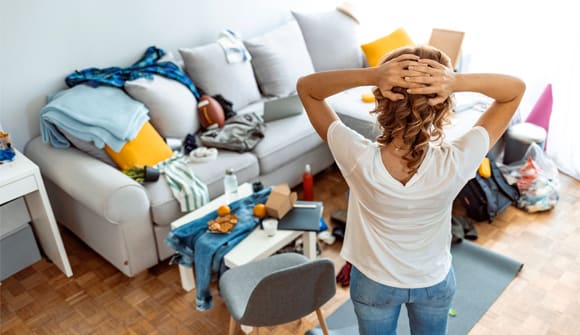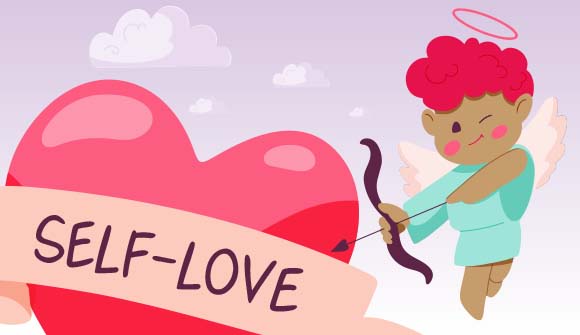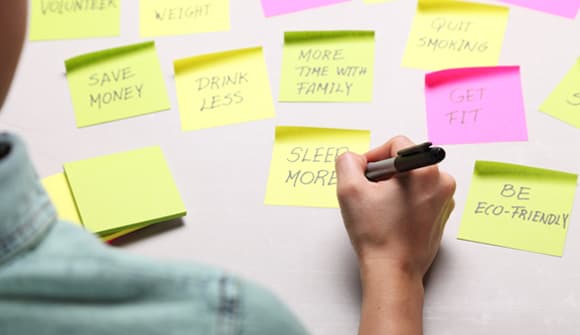Cleaning a cluttered mind
5 ideas to get organized for your mental health.
Article Author: Wesley Roberts
Article Date:

Your day doesn’t have to start with making the bed, but it can certainly help. According to a study published in the National Library of Medicine, women who thought their homes were cluttered also had elevated levels of cortisol, a stress hormone.
“If you have a lot of physical things out of order that are surrounding you, especially in your office or your home, this visual stimulation impacts mental stimulation,” explained Tyrenia Cross, PhD, licensed mental health counselor at Baptist Behavioral Health.
The research shows the mental impact as a result of a messy environment affects women in particular.
“I think many women feel a heavy sense of responsibility to take care of the house or the environment we’re in, and this includes taking on the responsibility of fixing the clutter,” said Dr. Cross. “When really, we just need to ask our loved ones or our partners for help.”
Two-way path
Dr. Cross emphasized that clutter could impact your mental health and focus, and it goes the other way, too. Your mental health can impact how your surrounding environment looks. “They go hand-in-hand,” she said. “If your mind is cluttered, your space is a lot more likely to be cluttered. You have to address both.”
She shared five ideas for getting organized – both physically and emotionally:
- Schedule time for yourself. This can be dedicated to decluttering your mind, meaning doing something you enjoy like having coffee with a friend or going for a walk. This valuable time can also be dedicated to cleaning a space that is causing you stress. Make time for you and protect it!
- Learn the art of no. “No doesn’t mean I will not,” said Dr. Cross. “No means I cannot right now.” With the busy hustle of today’s world, it’s important to know your boundaries and keep your scheduled uncluttered as well.
- Ask for help. “This may seem like an obvious one, but we often skip asking for help because we’re afraid of vulnerability,” said Dr. Cross. “You’re not able to get your needs met if you’re not communicating you have a need.”
- Create realistic expectations for yourself. While we all could have a to-do list a mile long, that’s not the recommended approach. Dr. Cross advises creating a to-do list that is reasonable, even if that means performing one organization-focused task a day.
- Recognize when your body is telling you, “It’s too much.” The mind, body and environment are all interconnected. If you’re feeling tired, overwhelmed, anxious or depressed, go back to scheduling time for yourself. Talking to a professional is always a good idea if you need help.
“You don’t have to carry this (or clean it all up) alone,” said Dr. Cross. “Enlisting a loved one to support you and decluttering your space will definitely support adaptive mental health functioning.”
Need a professional to help you declutter whatever is on your mind? The mental health professionals at Baptist Behavioral Health are here for you. To find a provider, visit baptistbehavioralhealth.com.



